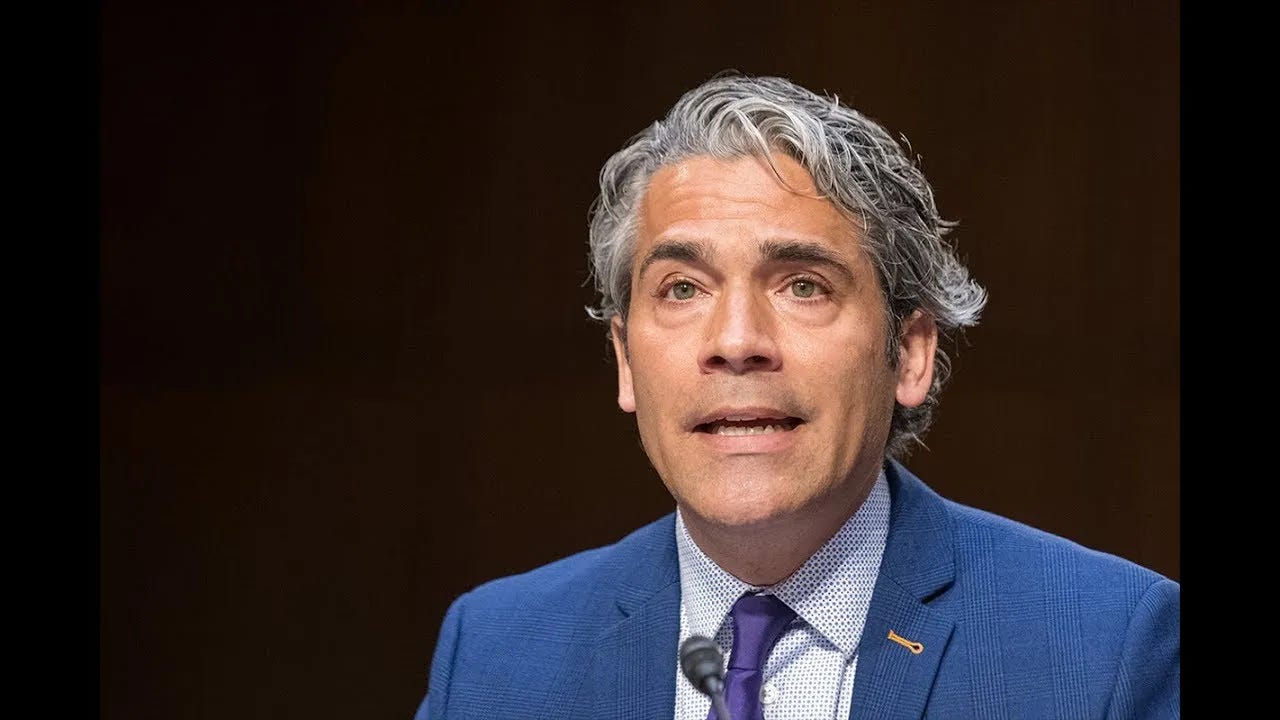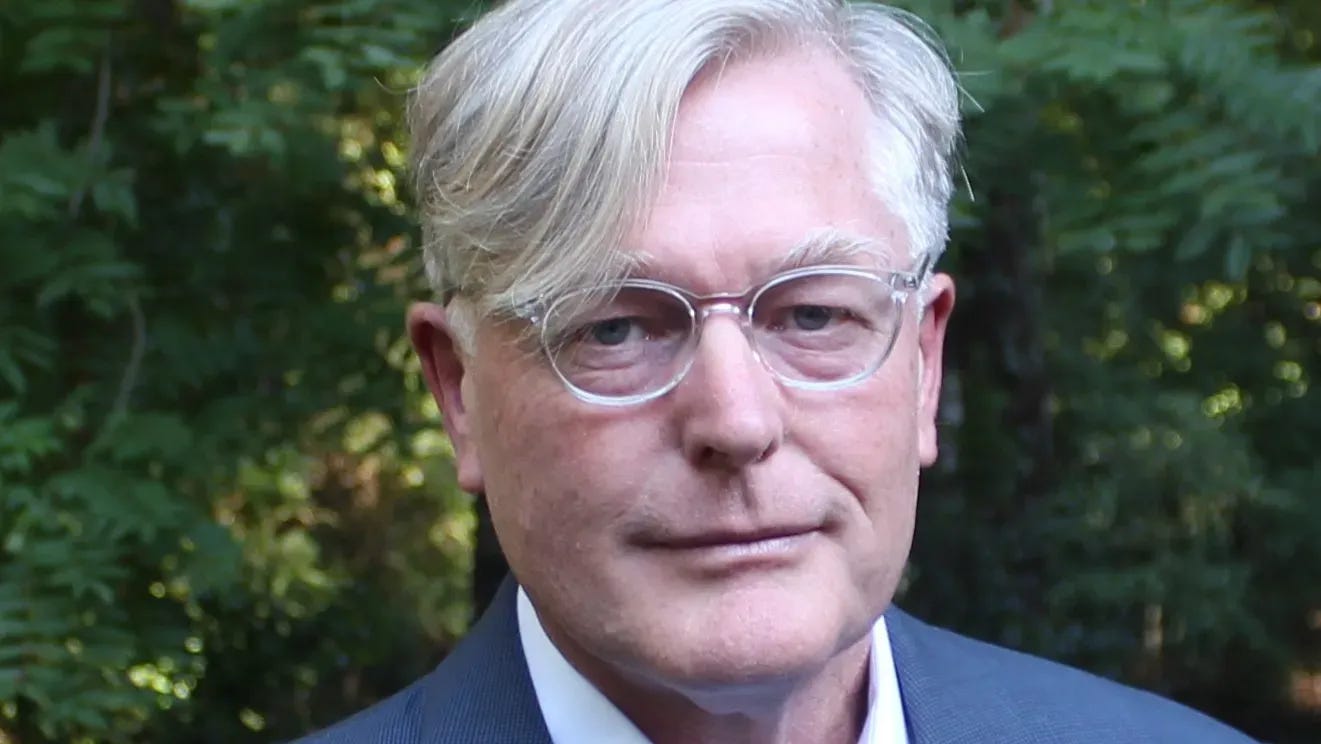Origin stories
What progressives and populists get wrong about America’s founding
Over the coming months and years, Americans will commemorate a series of 250th anniversaries — of key moments in the American Revolution, of pivotal battles in America‘s War of Independence, and of the crafting of the Declaration of Independence, the U.S. Constitution, and the Bill of Rights.
Freedom Conservatives will join our fellow Americans in celebration. Indeed, FreeCon leaders, scholars, policymakers, and activists are helping to organize many of these celebrations.
We’ll also be devoting significant attention and resources to rebutting false claims about the Founders, their handiwork, and their continuing influence on modern politics and government.
As we wrote in the FreeCon Statement of Principles, “more and more people on the Left and Right reject the distinctive creed that made America great: that individual liberty is essential to the moral and physical strength of the nation.”
Today we feature Freedom Conservatives who rebut ahistorical revisionism and seek to apply the timeless principles of the American founding to current policy challenges.
Conceptual trinity
Joseph Loconte is a Presidential Scholar in Residence at New College of Florida and the C.S. Lewis Scholar for Public Life at Grove City College. A Senior Fellow at the Trinity Forum, Loconte is also a FreeCon signatory.
Among the books he’s authored is the bestseller A Hobbit, a Wardrobe, and a Great War: How J.R.R. Tolkien and C.S. Lewis Rediscovered Faith, Friendship, and Heroism in the Cataclysm of 1914-1918.
Loconte’s follow-up book The War for Middle-earth: J.R.R. Tolkien and C.S. Lewis Confront the Gathering Storm, 1933–1945 will be released this fall, as will his documentary film Benjamin Rush: The American Revolution’s Indispensable Doctor.
In his contribution to The Dispatch series on America at 250, Loconte defended the English philosopher John Locke’s work and legacy from both progressive and populist critics.
“To the New Right — especially the advocates of National Conservatism and Catholic integralism — Locke is the serpent in the garden,” he wrote, “the thinker who unleashed the sins of materialism, expressive individualism, and militant secularism into the West.”
“With no sense of irony, they contribute to the progressive project of delegitimizing the American Revolution and the liberal democratic order it has brought about.”
In reality, the American colonists and their elected leaders were “heirs of the Lockean tradition,” he wrote. In the 1760s, as tensions with Great Britain deepened, Locke’s Two Treatises on Government was, by far, the most frequently cited source outside the Bible.
“As a result, freedom, reason, and revelation formed a conceptual trinity in the American Revolution. The powerful alliance of these ideas helps to explain the astonishing and enduring influence of the American example.”
Americans must aspire
Ryan Streeter is executive director of the Civitas Institute at the University of Texas and a FreeCon signatory.
Previously, Streeter was director of domestic policy studies at the American Enterprise Institute and had a distinguished career in government service, serving as policy advisor to a U.S. president, a governor, and a mayor.
He is the co-editor of The Future of Cities (2023), author of Transforming Charity: Toward a Results-Oriented Social Sector (2001), the editor of Religion and the Public Square in the 21st Century (2001), and the coauthor of The Soul of Civil Society: Voluntary Associations and the Public Value of Moral Habits (2002).
In a recent series of articles for Civitas Outlook, Streeter celebrated America’s history of aspiration and innovation, arguing that dynamism has been and ought to be a defining characteristic of our country.
“Grievance politics is by far the most acidic force in our politics and culture that discounts or dismisses altogether the role of agency in our individual lives,” he wrote, pointing out that it “has become commonplace on both the political Left and Right to believe that structural forces have rendered the American ideal of individual effort a quaint relic.”
Describing six traits essential to an aspirational society — openness, an exploratory mindset, conscientiousness, embracing challenges, social capital, and non-pecuniary motivation — Streeter observed that they “affirm values and principles we find embedded in American culture during the country’s first 100 years.”
He offered such examples as Benjamin Franklin’s meticulous notes on self-improvement, Ralph Waldo Emerson’s notion of self-reliance, and Abraham Lincoln’s observation that hired laborers become business owners as a result of a “just and generous and prosperous system which opens the way to all, gives hope to all, and consequent energy and progress and improvement of condition to all.”
Equality and greatness
C. Bradley Thompson is a professor of political science at Clemson University, executive director of the Clemson Institute for the Study of Capitalism, and the founder of the Lyceum Scholars program.
During his academic career, he has also been the Garwood Family Professor in the James Madison Program at Princeton University, a John Adams Fellow at the Institute of United States Studies (University of London), and a fellow of the Program in Constitutional Studies at Harvard University.
In his book America's Revolutionary Mind: A Moral History of the American Revolution and the Declaration That Defined It, Thompson identifies the modes of reasoning, the patterns of thought, and the moral and political principles that served American Revolutionaries first in their intellectual battle with Great Britain before 1776 and in their subsequent efforts to create new revolutionary societies after 1776.
In a recent post, he explored the principle of equality and its relationship to the American Dream.
The Founders “meant something very precise by equality,” Thompson wrote. “They understood it to be a statement of fact about human nature. All humans (men and women), they argued, are equal by virtue of sharing certain common attributes — namely, reason and free will.”
But equality under the law doesn’t guarantee equality in outcomes.
“We all know that no two individuals are the same in talents and abilities,” Thompson pointed out. “There are measurable inequalities — sometimes radical inequalities — between individuals relative to a whole range of human attributes.”
“Inequality and excellence play a particularly important role in a free and just society,” he continued. “A society based on equal rights permits — indeed, encourages — all individuals to live out their dreams, and that must include those whom John Adams and Thomas Jefferson referred to as the natural aristocracy of virtue and talents.”
“Equality is, therefore, the necessary precondition for the expression of human greatness.”
Our only hope
Adam White is a senior fellow at the American Enterprise Institute, where he focuses on the Supreme Court and the administrative state. He also co-directs the Antonin Scalia Law School’s C. Boyden Gray Center for the Study of the Administrative State.
White, a FreeCon signatory, has practiced constitutional and administrative law, particularly in the regulation of energy and financial markets. He’s testified before Congress and written for the Wall Street Journal, the New York Times, the Washington Post, National Affairs, and Harvard Journal of Law & Public Policy, among other outlets.
In his contribution to The Dispatch series on America at 250, White connected current controversies about judicial power to robust debates among the Founders about the proper role of the federal judiciary.
“The relationship between courts, the rule of law, and the rest of government was a central focus of the Declaration of Independence,” he wrote, which cited examples of King George III encroaching on the well-established prerogatives of American courts.
When the colonies won independence, they were able to restore judicial independence, to varying degrees, on a state-by-state basis. But federal law was at first subject to the states’ whims and preferences because the Articles of Confederation provided for no federal judiciary except for courts to adjudicate “piracies and felonies committed on the high seas.”
The framers of the U.S. Constitution responded by creating the U.S. Supreme Court and giving Congress the power to establish other federal courts. Alexander Hamilton then defended the high court’s role as a “bulwark” for freedom and the rule of law.
“Are we capable anymore of tolerating a constitutional judiciary that works with the judicial self-restraint and deliberation that, as Hamilton and Tocqueville and others warned, our constitutional system needs?” White asked.
“Let’s hope so, because it is indeed our only hope.”
In the mix
• In The Wall Street Journal, FreeCon signatory Karl Rove recommended new books and monographs on the Founding released by the American Enterprise Institute, the Fund for American Studies, and other groups to commemorate the semiquincentennial.
“A national discussion about why a stubborn people on a distant continent took up arms against the world’s greatest power might help rekindle a pride not only in our country but in its guiding principles,” wrote Rove, the prominent political consultant and former White House aide, especially the belief “that all men are created equal, that they are endowed by the Creator with certain unalienable Rights.”
“Those words bent the arc of the moral universe toward justice. They’re worth studying and celebrating. We’d be better off as a nation if we do.”
• At Law & Liberty, FreeCon signatory Richard Reinsch reviewed two recently published books by leaders of the nationalist-populist Right, Oren Cass of American Compass and Kevin Roberts of the Heritage Foundation.
Describing their works as “surreal” attempts to “reinvent American conservatism from scratch, as if 70 years of history can be dismissed or disregarded,” Reinsch argued that Cass and Roberts are acting as misguided revisionists, not conservative reformers.
“Today’s conservatives in Washington stand on the shoulders of ideas, research, and statesmanship that took decades to build,” wrote Reinsch, the editor-in-chief of Civitas Outlook.
“They would do well to improve it, not denigrate it. Besides, the economic populist program that Roberts and Cass endorse is not endorsed by most GOP voters, who continue to want traditional objectives of economic growth, limited and competent government, low crime, lower prices, and economic opportunity, plus an end to the ideological revolutionary nostrums of the Left.”




